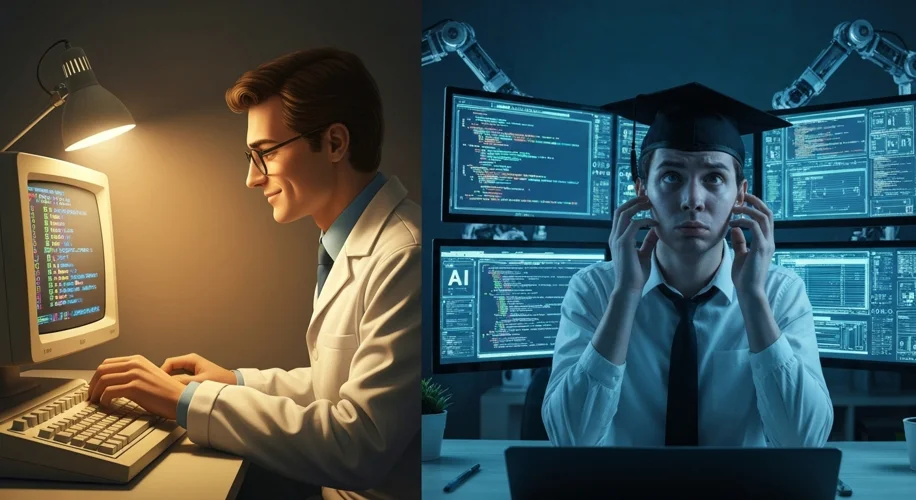It feels like just yesterday that a computer science degree was seen as a golden ticket to a prosperous future. The narrative was simple: learn to code, get a high-paying job in tech, and enjoy a career at the forefront of innovation. But today, August 11, 2025, that dream is facing some rather stark realities.
For many recent computer science graduates, the job market has become a labyrinth. What happened to the seemingly endless demand for coders? Several factors have converged to create this shift. Firstly, the tech industry has experienced significant market corrections. Companies that grew rapidly during boom times are now consolidating, leading to widespread layoffs. It’s a cycle we’ve seen before in other industries when growth outpaces sustainable demand.
Secondly, there’s the undeniable rise of Artificial Intelligence in software development. AI tools are increasingly capable of generating code, automating testing, and even debugging. While this technology holds immense promise for increasing efficiency, it also means that the entry-level coding tasks that once formed the backbone of many tech jobs are becoming automated. This integration is changing the skill set employers are looking for, demanding a higher level of expertise, problem-solving, and conceptual understanding rather than just pure coding ability.
Looking back through my archives, I’m reminded of similar transitions. Think about the printing press – it democratized knowledge but also displaced scribes. Or the automation of factory floors; it increased productivity but fundamentally changed manufacturing employment. Each technological leap, while ultimately beneficial, creates a period of disruption and requires adaptation.
For those entering the field now, or those already in it, this doesn’t necessarily signal the end of opportunity, but rather a significant evolution. The focus might need to shift from purely writing code to understanding how to effectively leverage AI tools, designing complex systems, cybersecurity, data science, and the human-centric aspects of technology. The skills that were once paramount may be supplemented, or even superseded, by new demands.
The computer science dream, in its original form, might be morphing. It’s becoming less about simply being a coder and more about being a builder, a designer, and a strategist in an increasingly automated world. It’s a challenging transition, certainly, but history shows us that adaptation is key to thriving through technological change.

